Influential indie studio Vlambeer is shutting down after a decade
Rami Ismail and JW Nijman are done.
The first time Rami Ismail and Jan Willem Nijman spoke to one another, it was early morning in 2008 and they were riding the train to the Utrecht School of the Arts, where they both studied game design. Ismail was holding court with a group of friends, telling them about the 3D space simulator he was working on with a studio outside of school. It was nearly complete and Ismail was excited; he carried on talking about launch prices and beta progress until a voice from across the aisle stopped him short.
“Can you shut up? It’s like 8 in the morning,” Nijman said, half-asleep and buried in his hoodie.
Two years later, Nijman and Ismail would no longer be students at the Utrecht school, opting to enter the world of professional game development together, as an independent studio called Vlambeer. Three years later, Vlambeer would be worth more than $1 million.
And today, they’re shutting it all down.
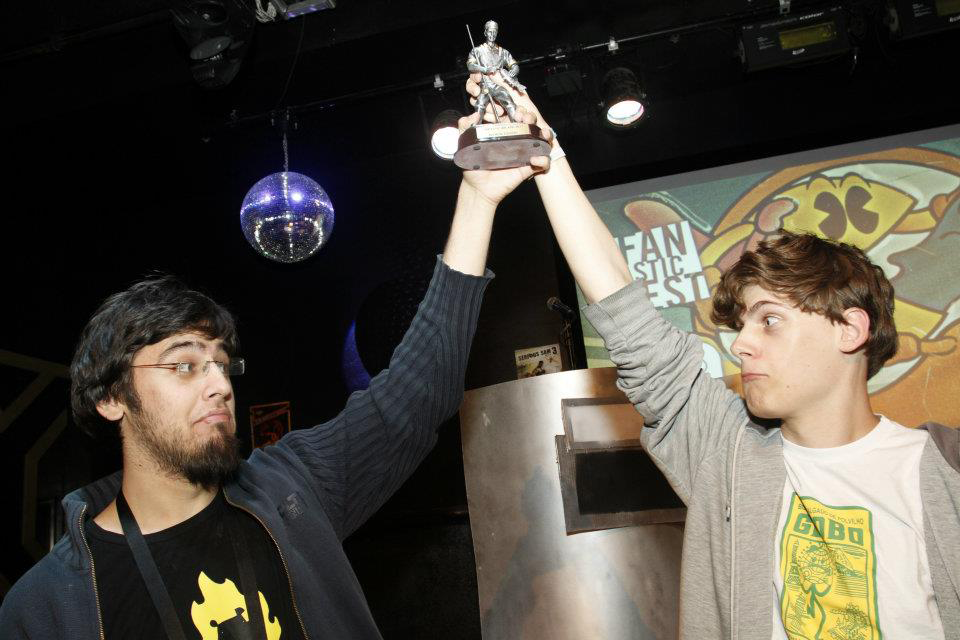
September 1st marks Vlambeer’s 10-year anniversary, and it’s also the studio’s final day. Ismail and Nijman made the decision to end Vlambeer just two weeks ago, amiably and without drama.
“What kind of happened is nothing happened,” Ismail said. “It's just Vlambeer had a certain tension around it and that tension broke for a while. We came back, we realized that we were now going in different directions. ...I think this had sort of been coming for a long time. Vlambeer was not meant to be eternal for us, even from the start.”
“We said we were going to do this for five years,” Nijman added.
“And then quit,” Ismail said, finishing Nijman’s thought. “Just long enough to recover our life from not finishing school. And then never talk to each other again or something.”
Nijman jumped in: “Yeah. I'm going to mute you on Twitter after this.”
“Yeah, I mean, same,” Ismail volleyed, laughing. “To be fair, I would not blame you. I would mute me on Twitter.”
Ismail and Nijman have never been best friends, but for the past decade, they’ve been symbiotic business partners, operating on a balance of trust and shared philosophy. Together, they released Super Crate Box, Ridiculous Fishing, Serious Sam: The Random Encounter, Gun Godz, Luftrausers and Nuclear Throne. They made plenty of money, picked up a handful of prestigious awards, and developed tools to help other developers thrive. In doing so, they helped lay the groundwork of contemporary indie development.
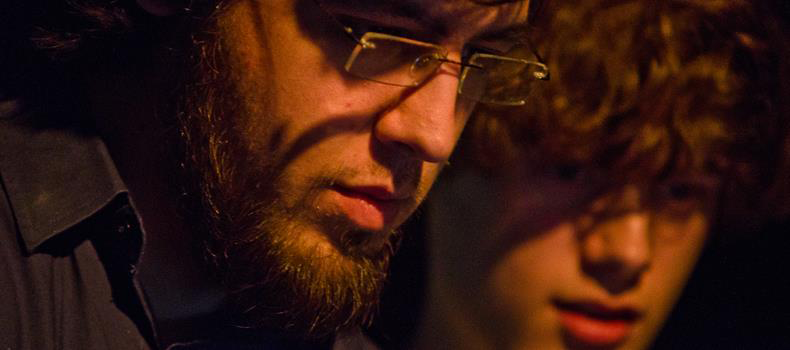
When they founded Vlambeer, Ismail was 20 and Nijman was 19. Ismail was dramatic and charismatic, able to talk to anyone and determined to turn game development into a sustainable business for himself. Nijman recalled a time Ismail fainted on-stage in the middle of a presentation after pulling one too many all-nighters, emblematic of his blind ambition.
Meanwhile, Nijman was idealistic about indie games -- he snapped on the train because the game Ismail wouldn’t shut up about was 3D and not free, two aspects that excluded it from the “indie” label in Nijman’s teenage mind -- and he was a prolific, talented designer. His specialty was creating a prototype in just a few hours, releasing it into the wild, and then repeating the process.
Ismail called many of Nijman’s original projects “obnoxiously hipster art things,” but said his perspective changed once he played If you really want it, you can fly.
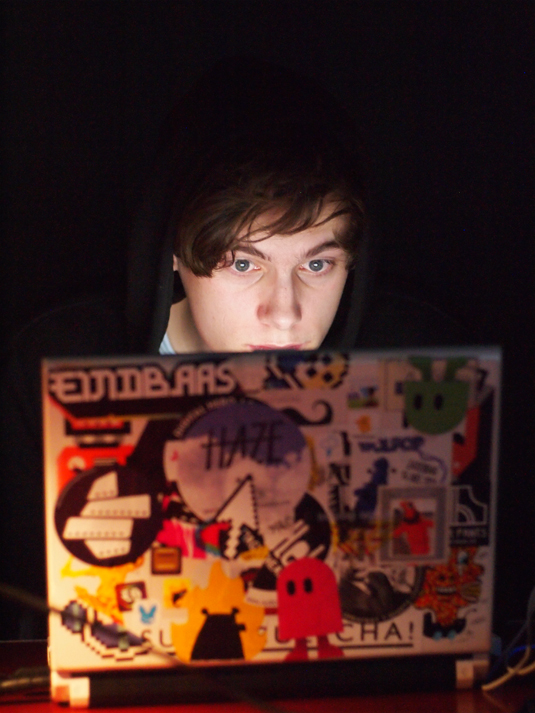
“It was very simple,” Ismail said. “It was really clearly quickly made, and he made me play it and it was kind of a troll game, but it was perfectly designed. There was literally nothing I could poke at. And I would have loved to give JW shit even back then, but there was just nothing. It was just good.”
Ismail and Nijman fully acknowledged their differences, but they also recognized each other’s strengths. On top of their individual game-development skills, Ismail was talented in branding, marketing and communications, and Nijman was a masterful designer who knew how to complete a project. They collaborated on a game but soon learned that anything they made while students belonged to Utrecht School of the Arts. Neither of them were interested in losing the rights to their own creative work, so they ditched school, subsisting on noodles and government loans as they crafted Vlambeer’s first games.
“We never really got along, but we kind of saw, hey, we both have ambition and like making stuff,” Nijman said. “And we were both at this spot where it was like, OK, should we do this school thing? Or should we start a company and give it a shot? And that was the time where Xbox Live Arcade was starting to become a thing, and digital distribution.”
Braid came out on Xbox Live Arcade in 2008 and set the stage for a new generation of indie game development. It was proof that high-quality, innovative and profitable experiences could be crafted by just a handful of people, and it ushered indie gaming onto consoles. Super Meat Boy followed in 2010, bringing another smash hit to Xbox Live Arcade, with just two developers and a composer in the credits. Iconic indie game Fez landed in 2012, and that same year Steam became so overrun with game submissions that it implemented Greenlight, a community-run curation program. A fledgling indie-publishing company called Devolver Digital was handling the initial rush of attention for its most recent release, Hotline Miami.
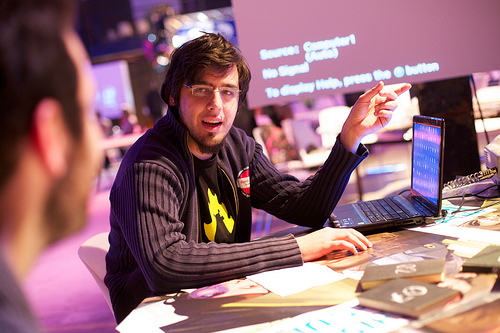
Seemingly overnight, indie development transformed into a new breed of rockstardom. Players were hungry for fresh experiences, and major brands including Microsoft and Sony were suddenly offering huge platforms to small teams. This is the environment that Vlambeer was born into, and with school out of the picture, Ismail and Nijman were able to take full advantage.
The Vlambeer boys created a Flash game called Radical Fishing in about a month, and sold it to a PC distributor for $10,001 in 2010. Meanwhile, they resuscitated an old prototype of Nijman’s called Crates from Hell and named it Super Crate Box, a pixelated shoot-em-up featuring randomized weapons and frenetic gameplay. They brought on-board artists Roy Nathan de Groot and Paul Veer, and composer Eirik Suhrke, and rushed to get Super Crate Box ready for the 2011 Independent Games Festival.
Nijman created a giant production schedule out of printer paper and hung it on his living room wall, listing the goals for each day in order to make it to the IGF Awards.
“It was just very kind of high energy,” Nijman said. “We were very excited and we just made this game happen very quickly. Because for me personally -- and I think also for you, Rami -- it's like from the moment that we really started the company, I was like, oh, this is for real. We're going to do this to pay rent.”
Super Crate Box officially launched on PC in October 2010. Months later at the 2011 Independent Games Festival, it was selected as a finalist in Excellence in Design and received an honorable mention for the Seumas McNally Grand Prize. Vlambeer was on the map.
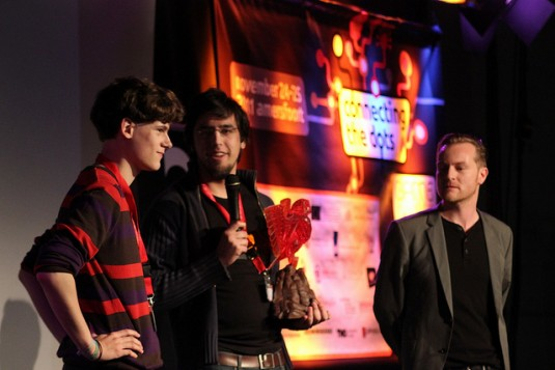
“For me, the next five years of Vlambeer from the start, were kind of a whirlwind of flying from project into project,” Nijman said.
“Three-ish years until Ridiculous Fishing,” Ismail interjected. “Genuinely, you can ask me what I was feeling like, but everything before Ridiculous Fishing has turned into a blur for me. Because you have to imagine, for both of us, we were falling from critical reception into critical reception. Like, ‘Oh, you should do this project, but on iOS,’ into like, ‘Oh, you've got IGF nominated again,’ to like, ‘Now you have GDC nominations.’ It just kept rolling. It never stopped rolling. And then Ridiculous Fishing, when the clone happened, is sort of like the first time we got punched in the gut.”
Ismail and Nijman woke up one day in 2011 and discovered one of their original projects, Radical Fishing, had been cloned on the App Store. This was a serious problem, considering Vlambeer was hard at work on Ridiculous Fishing, a polished and expanded version of their Flash prototype built specifically for iOS. The knock-off, which was free, shot to the top of the App Store just as Vlambeer was getting ready to announce Ridiculous Fishing, which would cost $3.
The price was already a gamble for Vlambeer. This was at a time when “free” was the norm for games on the App Store, even for high-quality experiences. Ismail did damage control while Nijman, Zach Gage, Greg Wohlwend and Eirik Suhrke finished up Ridiculous Fishing, and Vlambeer released the game in 2013. It made $1 million in six months, and the studio picked up an Apple Design Award. Ismail and Nijman breathed a sigh of relief.
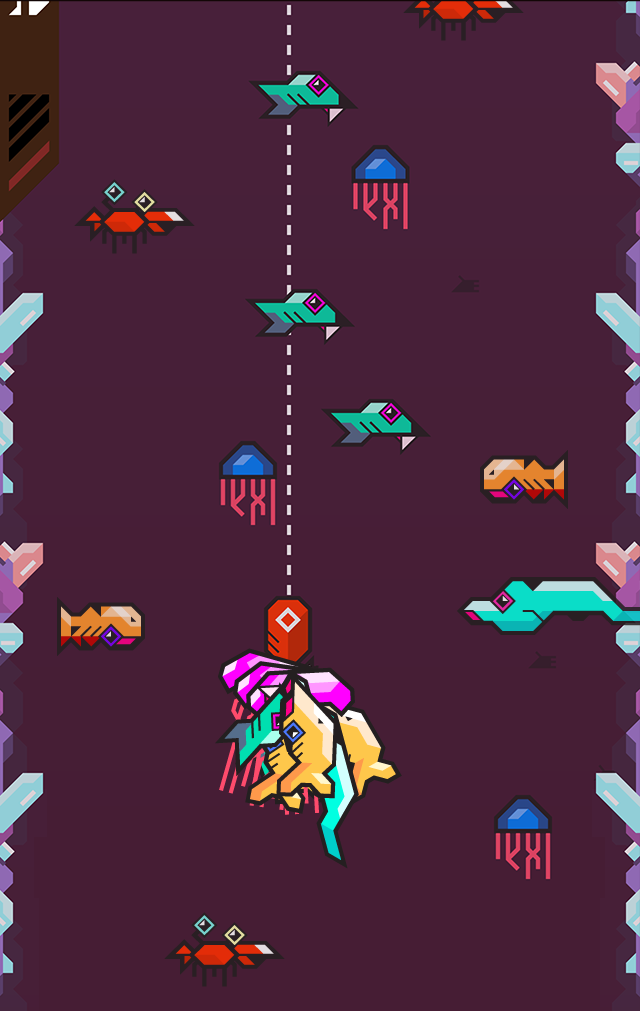
Throughout all of this, Ismail was traveling the globe, speaking at gaming conferences and telling Vlambeer’s story to other developers. Conference organizers at one show would see him speak and offer opportunities at other events, and Ismail saw first-hand how powerful this brand of marketing could be. Every time he spoke, not only was he offering sound advice to other indies, but he was promoting Vlambeer, solidifying it as a voice of authority in the industry. He created talks and toolsets to help a fresh influx of indie developers navigate contracts, press and marketing, including the widely used presskit() template. He advocated for equality on-screen and behind the scenes, and highlighted the sorry state of Muslim representation in games.
In the early days, Ismail would string together conference appearances on the fly, accepting if organizers would cover flight and lodging costs. Often, he didn’t even have a plan to get back to the Netherlands.
“I chained together talks,” Ismail said. “And I genuinely had times where I was in foreign countries with no idea how I was going to fund getting home. Because, like, I needed a talk in Europe to fly me back home from the US or from wherever the hell I was.”
Nijman added, “And also if you look through Rami’s speaking throughout the years, you can see that he was just learning so much. You very quickly found your voice, but at some point you started giving speeches that were a bit like Obama's… and I think now you've finally really found your own voice, but it was like watching someone learn to rap.”
This entire time, Vlambeer was sustained by the momentum of a rapidly growing indie scene, and the kind of personal hunger that often manifests in early-20-somethings. Ismail and Nijman released project after project, attended conference after conference, and kept their profile high. They released Serious Sam: The Random Encounter, Gun Gods and Luftrausers, and got right to work on Nuclear Throne, the most ambitious game in their roster. It took three and a half years to complete, and by the end, Ismail and Nijman were running on empty.
“We had a lunch meeting, I think,” Ismail said. “And we just looked at each other and we're like, I need time off. We need to not talk for like a year or something.”
“Not even that we didn’t need to talk, it was just that we needed a big, big fucking vacation,” Nijman said.
Ismail and Nijman took a break. In 2016, they stepped away to work on their own projects, separately. Nijman traveled the globe and built MINIT with Kitty Calis, Jukio Kallio and Dominik Johann. It was nominated for a handful of awards, including Seumas McNally Grand Prize at IGF 2019 and Outstanding Achievement for an Independent Game at that year’s DICE Awards. Ismail expanded his advocacy efforts and launched GameDev.World, a global effort to connect and support developers trying to make it on their own.
Vlambeer’s momentum stopped.
Ismail and Nijman reconvened and attempted to pick up where they left off. They created plans for ULTRABUGS and started coding. And coding. And coding.
“We noticed that just getting ULTRABUGS out has just kind of been this, I don't know,” Nijman trailed off.
“Long, drawn-out process,” Ismail finished.
“It's not necessarily hard, but it's just not happening,” Nijman said. “I think we both realized that our interests are now kind of in different places.”
“We reorganized our lives during that year,” Ismail said. “And it turns out that I guess part of Vlambeer was momentum, and that went out for a bit. So we both grew in different directions. And this was sort of the first opportunity for us to fully grow in different directions.”
ULTRABUGS is still coming, and it’ll be the last game under the Vlambeer banner. Ismail and Nijman will work on it in their own time, release it, and then turn off the lights for good. There’s no release date for ULTRABUGS.
Nijman and Ismail will continue to do their own thing in the video game industry. Nijman is collaborating with other developers and building games like Disc Room, which is being published by Devolver Digital. Ismail is focused on GameDev.World and other advocacy efforts, as well as his own development projects.
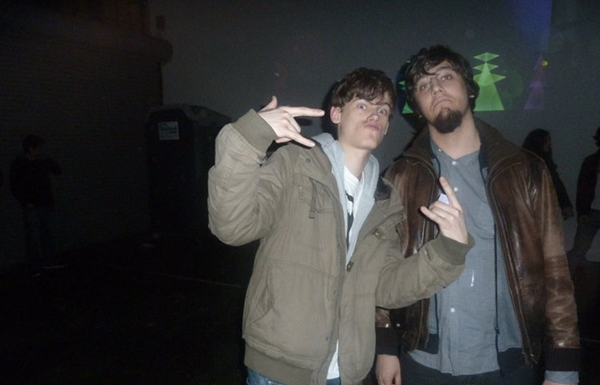
“I’m a little nervous, but also excited,” Ismail said.
Nijman cut him off to say, “I’m not worried for you. I totally trust that you’re gonna do your thing, do your Rami thing.”
Even though they’ve never been friends, per se, Nijman and Ismail respect the hell out of each other, and this partnership served them well for 10 years. They’re now approaching their early 30s, shifting their goals and finding new perspectives. However, one core mission remains the same for both of them: help the indie industry grow. Vlambeer served that purpose for a while, but now it’s time for something new.
“People don’t necessarily need a Vlambeer anymore,” Nijman said.
“We’ve said what we wanted to, we've said when we needed to, we've grown along with the industry in such interesting ways,” Ismail added. “If I'm honest, I would much rather close this chapter with one last good choice than bleed out over the years, doing less and less.”
The indie industry may not need Vlambeer anymore, true. But more importantly, Ismail and Nijman don’t need Vlambeer any longer.

 Yahoo Lifestyle
Yahoo Lifestyle 

